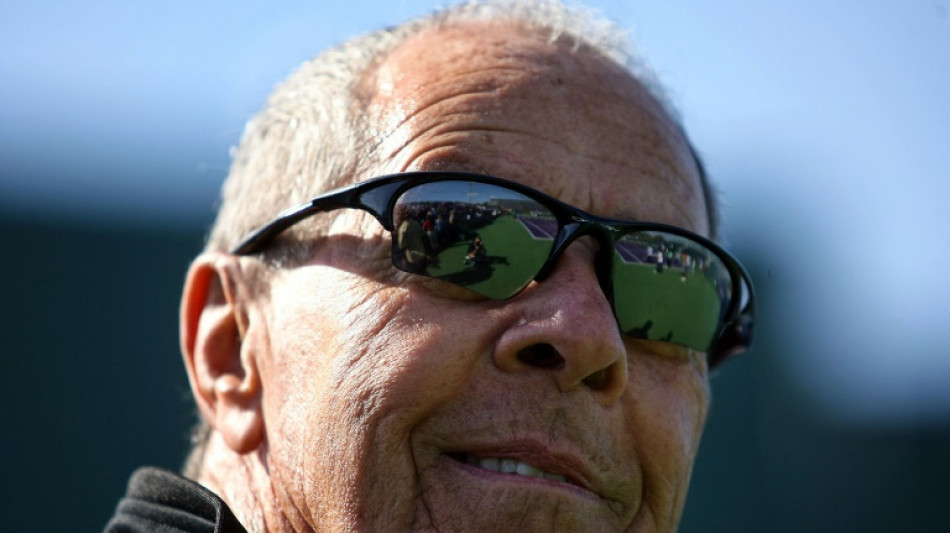
Bollettieri -- the hard as nails coach who shaped tennis stars

Nick Bollettieri, the celebrity tennis coach who helped develop such icons as Andre Agassi and Monica Seles, died on Monday aged 91.
While his methods were sometimes controversial, his academy in Florida churned out top players. Agassi, Maria Sharapova, Seles, Jim Courier, Anna Kournikova and Mary Pierce all passed through his Bradenton complex.
Bollettieri also advised Venus and Serena Williams and Boris Becker.
The demanding routine for children and adolescents living and training at his academy produced results but also drew criticism. His relationship with some of his successful proteges, including Agassi and Seles, eventually soured.
"I hated it at Bollettieri's academy," said Agassi.
"The only way I could get out was to succeed."
Bollettieri, though, remained unrepentant.
"I did what had to be done. Tennis is not a sport for choirboys," Bollettieri said.
Bollettieri was born in Pelham in the New York suburbs on July 31, 1931. He studied philosophy at a small Catholic college in Alabama, saying later that was when he started playing tennis regularly.
After serving in the US Army in Korea, Bollettieri started a law degree in Miami but dropped out to become a professional tennis coach.
At one stop, in Wisconsin, he coached the young Brian Gottfried, who went on to become the world number three in 1977, giving Bollettieri some visibility.
In 1978, he founded his own tennis academy in Florida with Carling Bassett, who turned 11 that year, as his first residential student.
He worked his players hard.
In 1980, Sports Illustrated headlined a piece about Bollettieri: "He'll Make Your Child A Champ, But It Won't Be Much Fun."
Bollettieri believed in repetition.
"To change a shot," he said, "you have to repeat the same shot about 30,000 times in training. That's the rate, the union minimum."
- 'Knowing the people' -
Bollettieri also insisted he developed character.
"I'm proud most of all of how these boys became men -- not just great tennis players, but even better people. Look at all the things they've done," he told Tennis.com
Combining more than four hours of training with school kept the youngsters busy from dawn to dusk, five days a week with half days on Saturday. They weren't allowed to drink, smoke, chew gum, swear or engage in public displays of affection.
His method succeeded for some but broke others.
By the 1990s, he had become a star coach -- his tanned, weathered face and signature sunglasses appeared at all the major tournaments.
"I am the best coach in the world. I have no doubt about it," he boasted in a 1994 book.
He liked to call himself the "Michelangelo of Tennis," said the Tennis Hall of Fame on his induction in 2014.
Bollettieri understood that he needed to produce top-level players to market his business, but that strategy ended with his selling to sports talent agency IMG.
"I went after the best students both in the US and overseas and gave them all scholarships, because it was those players who attracted the paying customers," he told Tennis World.
"The only trouble was that I handed out so many scholarships that the business ran out of money, so in 1987 I sold the academy."
He kept coaching and his approach kept delivering talent.
Atop Bollettieri's Twitter feed is a photo taken in 1989 with his "Young Bucks" -- Martin Blackman, Courier, David Wheaton and Agassi.
"God blessed me with the ability to read people," he told Tennis Now.
"At one time... we had Seles, who would work two and three months just to master one shot. We had Courier, who would work like a work-horse on the court and at night he'd beat the drums. We had Agassi, who if I got 10 minutes a day to work with, I was lucky.
"I think that the teaching of the game is relatively simple, but knowing the people and how they react is important."
A.dCosmo--PV
